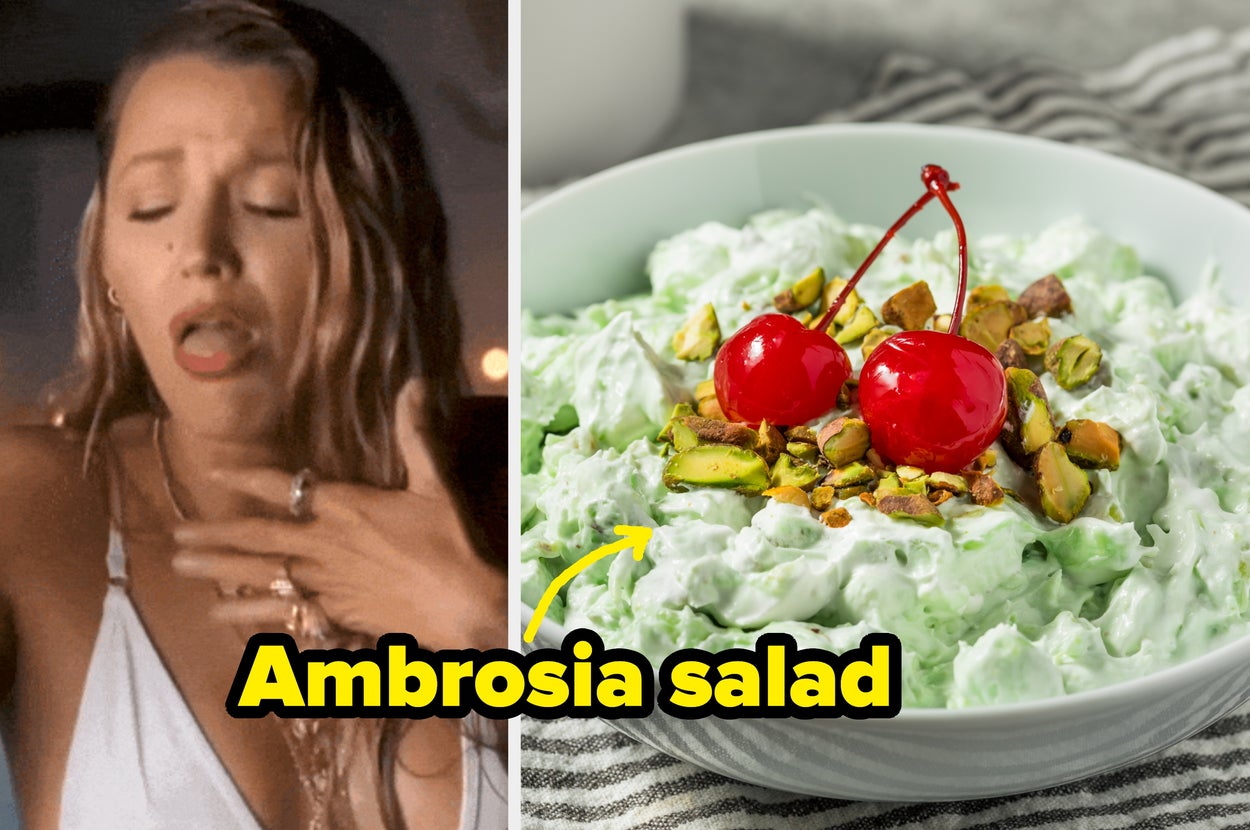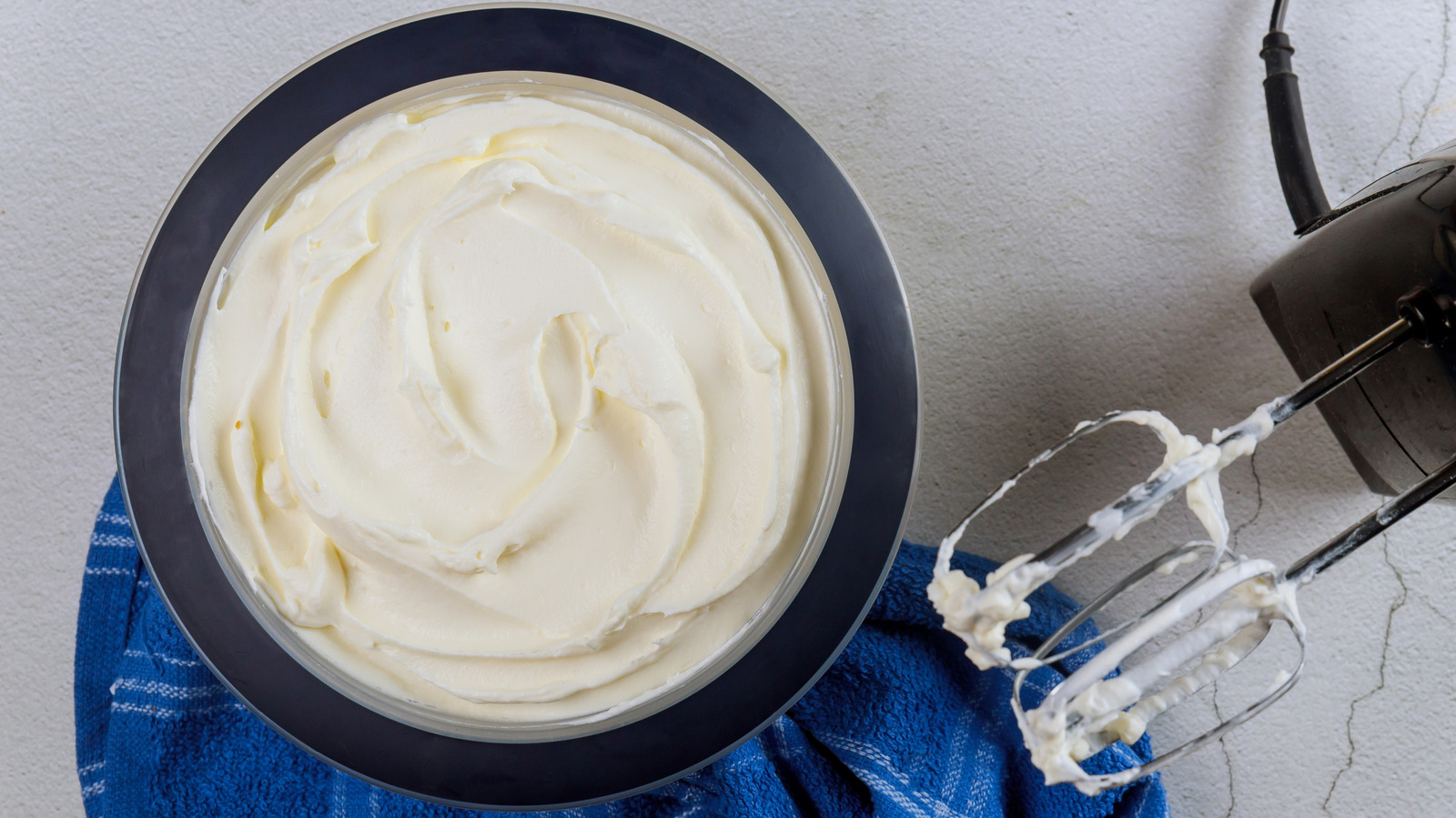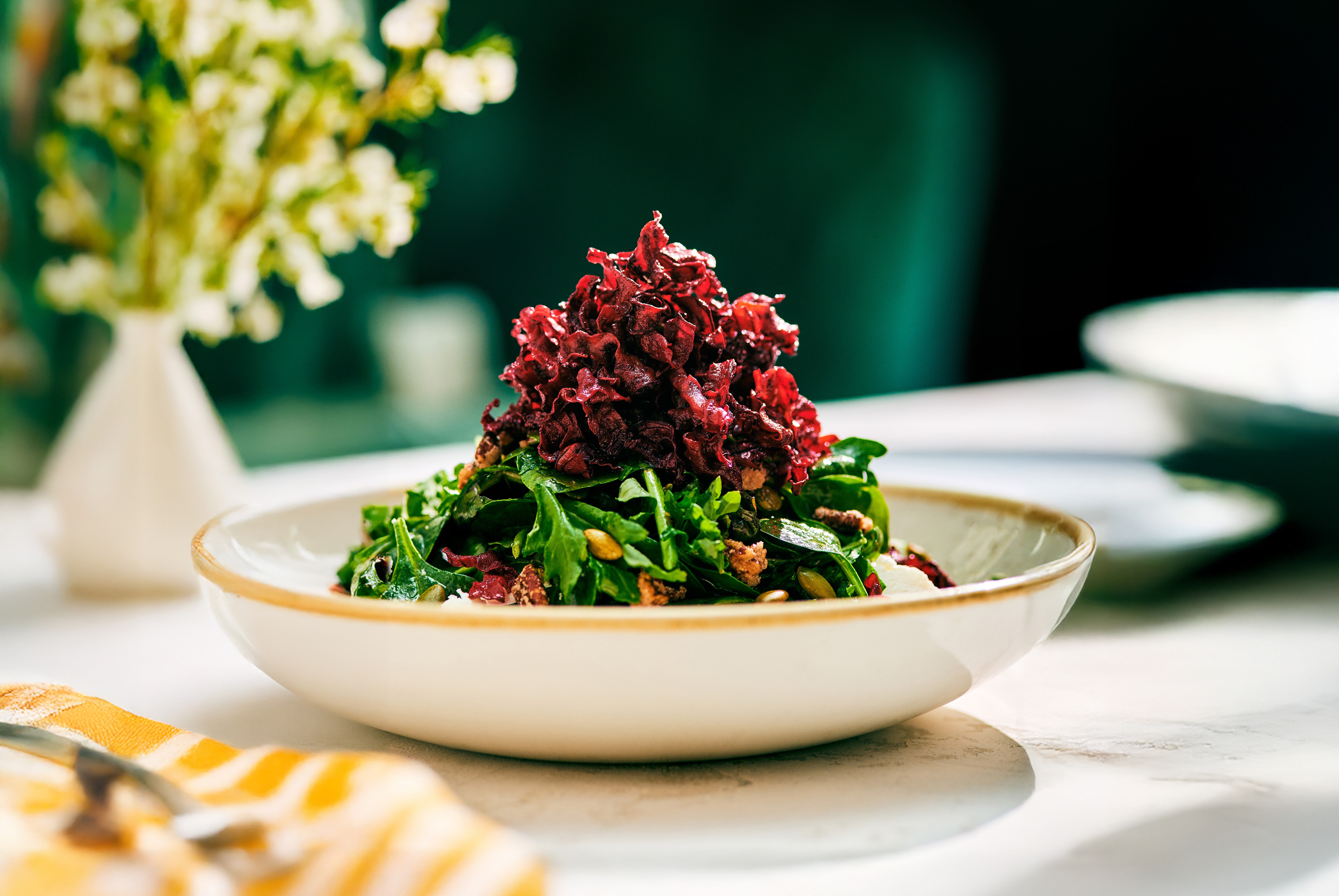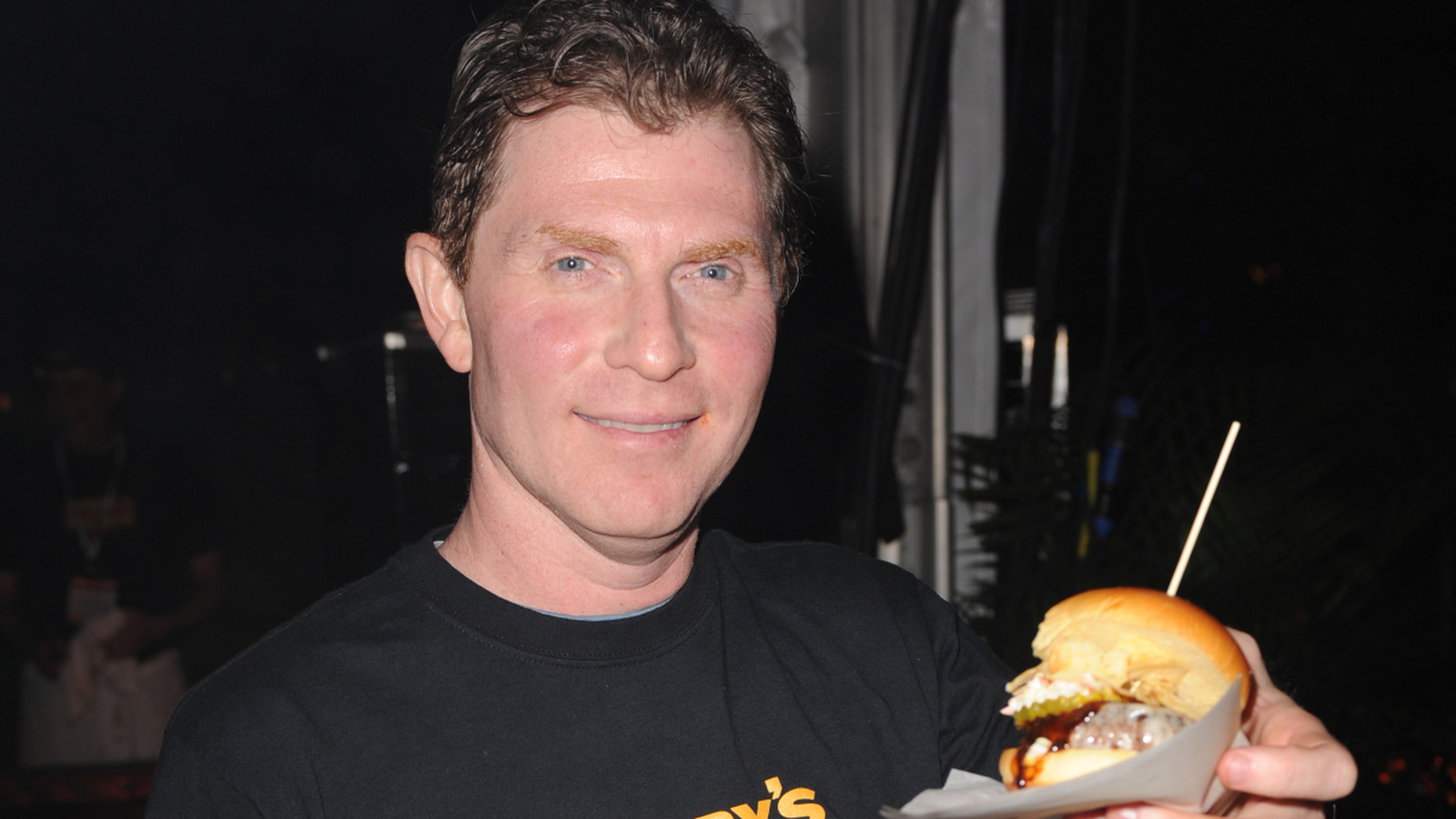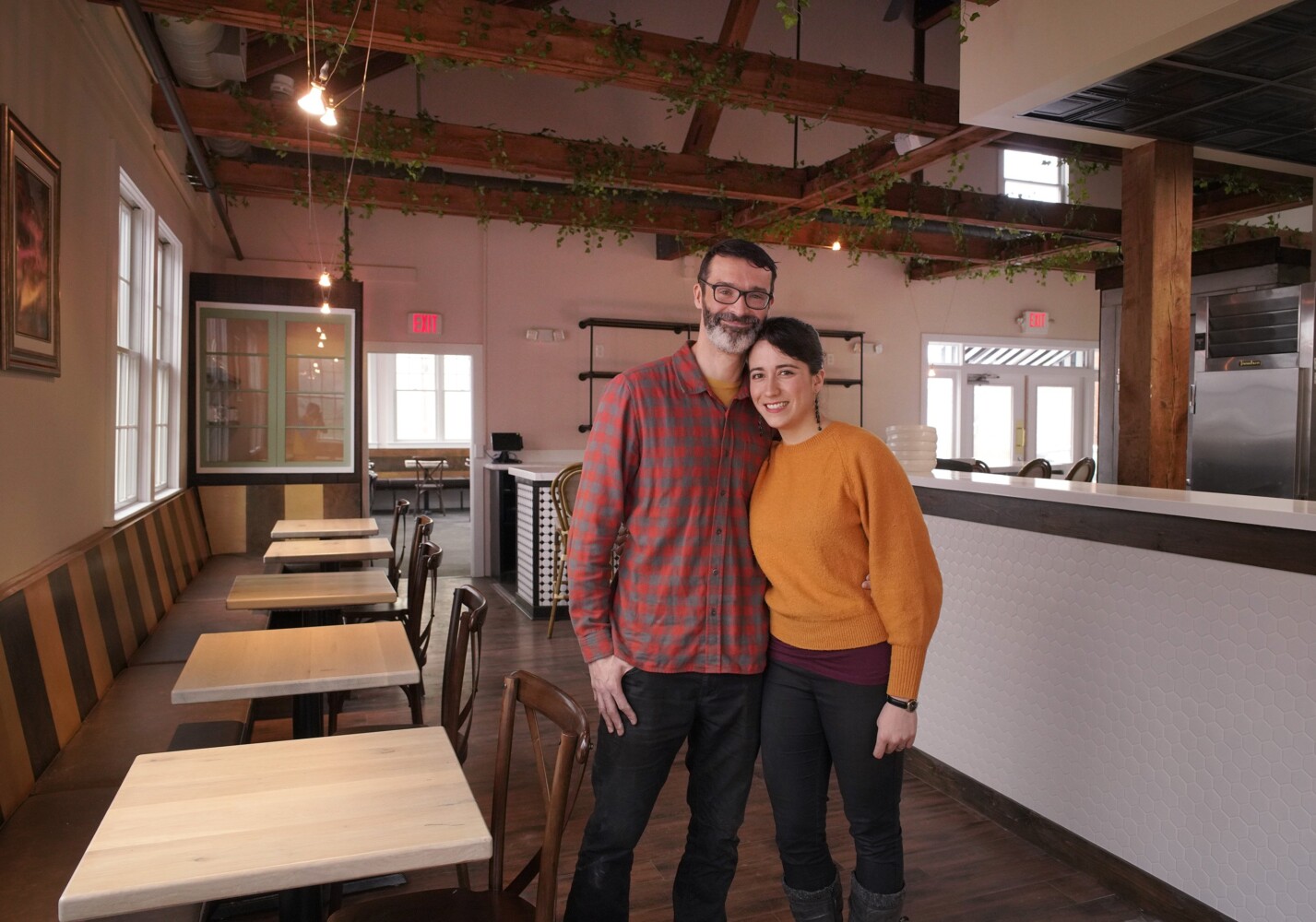If you're a fan of food, Anthony Bourdain needs no introduction. The world-respected chef first burst onto the scene with "Kitchen Confidential" – a tell-all book about the inner workings of professional kitchens — which led to a slew of travel cooking shows. Bourdain was especially loved for his wit and his outspoken opinions on cooking and chefs, which led to feuds with celebrity chefs such as Paula Deen, Rachael Ray, and Guy Fieri.
In fact, he became as well known for his sharp tongue as his cooking, even embarking upon a nationwide stand-up tour in 2015 (where he once again didn't hold back on how he really felt about Fieri). But how much of that Bourdain's larger-than-life, fiery persona was just Bourdain's celebrity alter ego? We dug into the chef's background to find out what Bourdain was really like when he wasn't on camera. As it turns out, there was much more to the chef than meets the eye.

From a passion for the martial arts to his favorite travel destination, here are a few things you may not have known about Anthony Bourdain's life offscreen. Anthony Bourdain had a tenacious spirit that led to his big break While it may have seemed like Anthony Bourdain was a longtime TV personality, he didn't actually move out of professional cooking until he was 44. It all started in 1999, when he penned an essay for the New York Press with the hope of earning some extra cash for the effort.
The publication never ended up running the essay, so he sent it to the New Yorker, which published it as "Don't Eat Before Reading This." This warts-and-all exposé of kitchen trade secrets, such as how kitchens save the worst pieces of meat for customers who order their steaks well done. The article led to a phone call from an editor with Bloomsbury, who offered him $50,000 to write the book that would eventually become "Kitchen Confidential.
" As Bourdain told in 2018, "It changed my life overnight. Overnight. I mean, I was desperately in debt.
Hadn't paid my rent on time, ever. Owed AmEx for 10 years without making a single payment. Owed the IRS, hadn't even filed.
[I] was in a very, very, very insecure place." Anthony Bourdain drew on his experiences with addiction to guide his career choices Anthony Bourdain made no secret of the fact that, as a young chef in Soho, he used a staggering amount of drugs. This included cannabis, methaqualone, cocaine, LSD, psilocybin mushrooms, secobarbital, amphetamine, codeine, and heroin.
In 2014, he told that his addiction had an upside, explaining, "I was a longtime drug addict, and one of the things drug addiction did, especially when you have to score cocaine or heroin every day on the streets of New York — you learn a lot of skills that are useful when dealing with Hollywood or the business world. In a world full of bulls**t, when you need something as badly as drugs, your bulls**t detector gets pretty acute. .
.. It makes it a lot easier to navigate your way through Hollywood.
" Eventually, Bourdain stopped taking drugs. He succeeded in getting off heroin in the 1980s, later stressing that he knew how lucky he was to have done so, with some of his friends taking much longer to kick the habit. Following a close encounter with war, Anthony Bourdain took a more serious approach to his work Once Anthony Bourdain started fronting his own shows, he traveled to Beirut to film "No Reservations," only to find himself caught up in the onset of the 2006 Lebanon War.
He went on to document the experience in a special known as "Anthony Bourdain in Beirut," for which he was later nominated for an Emmy Award for Outstanding Informational Programming. Bourdain later revisited Beirut, with his experience in 2006 convincing him to take a more serious approach to TV and documentaries in general. As he wrote in his field notes for the episode on the website, "I came away from the experience deeply embittered, confused — and determined to make television differently than I had before.
I didn't know how I was going to do it or whether my network at the time was going to allow me, but the days of happy horses**t — the uplifting sum-up at the end of every show, the reflex inclusion of a food scene in every act — that ended right there." The experience even inspired Bourdain to make his next TV series, "Anthony Bourdain: Parts Unknown." This ran for 12 seasons and took Bourdain to lesser-known locales, exploring the lives of the people who consumed the food he loved.
Anthony Bourdain didn't let celebrity feuds rule his life While he was first and foremost a chef, Anthony Bourdain was also famous for speaking out on anything that displeased him. His critiques covered everything from to celebrity chefs like Paula Deen, whom he once described to as "the worst, most dangerous person to America." Considering the fact that Bourdain even engaged in a nationwide tour called "Close to the Bone," you might have assumed that his outspoken nature was a permanent attribute.
However, in his later years, Bourdain stopped throwing quite as much heat at . In fact, Bourdain even somewhat backtracked on his former stance against the personality, telling in 2016, "I find Guy Fieri a rich and deep vein of comedy, there's no doubt about it, and he's worthy of a solid and maybe relentless mocking as anyone who has made his sartorial choices deserves. But is he bad for the world? On balance, probably not.
" Similarly, Bourdain seemed to warm to chef Emeril Lagasse after previously criticizing him in "Kitchen Confidential." Bourdain later went on to admit that while he still wasn't a fan of his TV shows, he was a fan of Lagasse as a person. In a guest post for in 2007, Bourdain wrote, "[Lagasse] deserves a lot more respect than I've given him.
He does run a very successful and very decent restaurant group. He is — in fact — a really nice guy." He even went on to write a scene for the restaurateur on the HBO show "Treme.
" He took up Brazilian Jiu Jitsu in his 50s In his later years, Anthony Bourdain became a passionate student of Brazilian jiu-jitsu, training at New York's Renzo Gracie Academy at the age of 58. He even established a routine of . "[Anthony] Bourdain, before he died, he was obsessed with Brazilian jiu-jitsu," Joe Rogan, a friend of Bourdain's, previously said on his podcast He went on to claim that Bourdain "became really obsessed with it at 58, and got really good" and was "training twice a day, every day.
" As for why he ended up taking the martial art, Bourdain told in 2017, "My then-wife [Ottavia Busia] was a full-time martial artist and invited four of the least likely people she knew to take a private training session in the hope it would be hilariously funny and pathetic." At the time, Bourdain was reportedly 35 pounds overweight, frequently chain-smoked, had never visited a gym, and didn't do a lot of cardio. He stuck with the sport, explaining that he liked the challenge.
"I found it very strategically and intellectually intriguing," he said. "I like problem solving and I also like being the stupidest person in the room. I like being at the foot of a very steep incline where you never reach the top.
" He regularly posted about martial arts on Reddit After falling in love with Brazilian jiu-jitsu, Anthony Bourdain found an outlet for his growing passion: Reddit. The chef spent years secretly posting on Reddit boards under the name NooYawkCity, writing about his experiences in Brazilian Jiu Jitsu, mixed martial arts, and important matters such as who would win in a fight between Wesley Snipes and Joe Rogan. As Bourdain wrote on , "I can tell you from personal experience you do NOT want Rogan's arms anywhere near your neck.
He cranks. Hard. And enjoys it while he does it.
He'd destroy Snipes. Like hospitalize destroy." Eventually, users caught on to Bourdain's identity.
However, he continued posting regardless. This led to him replying to a thread in which a user proposed that he write a book on Brazilian jiu-jitsu, firmly stating, "I'm a f***ing white belt. What I DON'T know about BJJ would fill volumes.
There is no danger of there ever being a Bourdain book on BJJ. Period. I can say this with some authority I think.
" Anthony Bourdain loved Japan and its cuisine According to Anthony Bourdain, visiting Japan for the first time was one of the most influential experiences of his life. As he told in 2014, "My first trip to Japan — a couple of years before 'Kitchen Confidential' was absolutely life-changing It was like my first acid trip. It was that mind-expanding and climactic.
I came back thinking about everything in a completely different way. I went there thinking there were a certain amount of primary colors. I came back knowing, in fact, there were 10 or 12 more.
It made me want to do things. It showed me there was so much more in the world than I had any idea about — there was so much to learn and there was so much stuff out there. It just gave me an appetite and drive.
" This wasn't the only time Bourdain professed his love for the country. In fact, he later revealed that he used Japanese food as a litmus test of sorts for new relationships. He later wrote on the website, "Every relationship I've ever had with a woman, at some point very early on I bring them to Yasuda in New York.
And I would watch how they eat. If they talk too much, if they didn't understand how to eat sushi, if they did not eat the uni, we will never have a relationship. That's it.
It's the end." and was often cited by Bourdain as one of his favorite local dishes. Despite his persona, Anthony Bourdain was actually shy In a 2018 tribute to Anthony Bourdain, his co-workers at Zero Point Zero Production — the production company behind his shows — recalled just how nervous and awkward he could be when off camera.
Its co-founder, Chris Collins, said, "People's idea of Tony is formed after 20 years of watching him on television, and there's a sense of like, 'This guy is the un-muscled James Bond.' In fact, he was actually a shy man." Others shared similar stories.
While Bourdain was confident onscreen, those who knew him best claimed that he was actually much more withdrawn in social situations, in particular. Gabrielle Hamilton, chef and owner of New York restaurant Prune, agreed with the observations shared by Collins. She recalled, "He was an awkward dude.
When he's on, you know, he can perform. And perfectly. But I think he has social anxiety.
...
Tony's famously like, 'Just don't leave my side. We're about to walk into this room, and there's gonna be 450 people in it. And they're all gonna say hi to me, and can you not be far?'" Anthony Bourdain was a huge fan of crime fiction Anthony Bourdain was a huge fan of crime thrillers and even wrote several of his own.
The first was "Bone in the Throat," which follows a young chef who takes a job at a restaurant in Little Italy, only to get caught between the mob and the FBI. That was followed by "Gone Bamboo," in which a retired CIA-trained assassin and his wife attempt to retire to the West Indies, only to cross paths with a powerful Mob boss in the Federal Witness Protection Program. His third and final novel, "The Bobby Gold Stories," focuses on a criminal who returns to the restaurant and club scene after 10 years in jail, only to stumble into more trouble.
When Bourdain wasn't writing his own crime novels, he was reading them. One of his favorites was "The Friends of Eddie Coyle" by George V. Higgins.
In fact, Bourdain liked it so much that he even filmed his Boston episode of "No Reservations" in the same style as the 1973 film adaptation. He also loved reading (and writing) comic books Anthony Bourdain's literary passions weren't limited to crime novels. The chef was also a big fan of comic books, having grown up reading horror titles from EC Comics and the underground comics of Robert Crumb.
In fact, Bourdain originally wanted to be a comic book artist, and even submitted several comics, only to have them rejected. Even when he was rejected, Bourdain was praised for the quality of his writing. He eventually ended up getting published with the 2013 graphic novel "Get Jiro!" Co-written with Joel Rose, the novel is set in a futuristic version of LA where master chefs rule the city and follows its eponymous renegade sushi chef as he navigates the city's culinary underworld.
It was popular enough to get a follow-up, "Get Jiro!: Blood and Sushi" – a prequel story that details Jiro's culinary training in Tokyo. It also inspired the upcoming animated series of the same name on Adult Swim, produced by Warner Bros. Animation.
Anthony Bourdain celebrated diversity and inclusion In the wake of Anthony Bourdain's death in 2018, there was plenty of discussion about all the ways in which he used his writing and productions to promote marginalized people around the world. Much of this was accomplished by "Anthony Bourdain: Parts Unknown," which explored many underrepresented populations around the world. The series was even awarded the Voices of Courage and Conscience Media Award by The Muslim Public Affairs Council's Hollywood Bureau for its episode covering the conflict between Israel and Palestine.
Bourdain also drew attention to anti-immigrant sentiment on his , writing in regards to an episode of "Parts Unknown" set in the country in 2014, "As any chef will tell you, our entire service economy — the restaurant business as we know it — in most American cities, would collapse overnight without Mexican workers," he wrote. He went on to dismiss the prevalent rhetoric claims that immigrants are "stealing American jobs," and detailed everything he loved and respected about the culture. "We love Mexican music, Mexican beaches, Mexican architecture, interior design, Mexican films," he added.
"So, why don't we love Mexico?" He never drank at home Despite drinking and carousing at length on his TV shows, Anthony Bourdain maintained that he never drank at home. In a 2014 interview with , Bourdain said, "You see me drink myself stupid on my show all the time. And I have a lot of fun doing that.
But I'm not sitting at home having a cocktail. Never, ever. I don't ever drink in my house.
I don't even drink beer in my house." He went on to insist that while he liked to indulge, he didn't let it "bleed over into the rest of [his] life." In his own words, "I have s**t to do.
" While he may have preferred not to drink at home, . As he once told , his go-to solution for a heavy night of drinking was "Aspirin, cold Coca-Cola, smoke a joint, eat some spicy Sichuan food. Works every time.
" He also claimed that this worked best if you woke up as early as possible the next morning. In his final years, Anthony Bourdain rediscovered his love of cooking While reflecting on Anthony Bourdain's legacy, several of the chef's friends told in 2018 that he had started cooking again in the final years before his death. In particular, Bourdain enjoyed cooking big dinners for groups of friends.
Doug Quint, founder of Big Gay Ice Cream, said, "He's the kind of host like Ina [Garten] or Martha [Stewart], who has Tupperware ready to go at the end of a meal. He made sure there were extras and that you went home with stuff." Two years before his passing, Bourdain himself spoke about his home cooking, claiming that and that the recipes in his latest book, "Appetites," were reflective of what they ate together.
"When I cook at home, it's with a 9-year-old girl in mind," he said (via ). "I mean, she's who I need to please, and if she's not happy, I'm not happy. The whole house revolves around her and her friends.
So it's reflective of that." Recommended.
Food
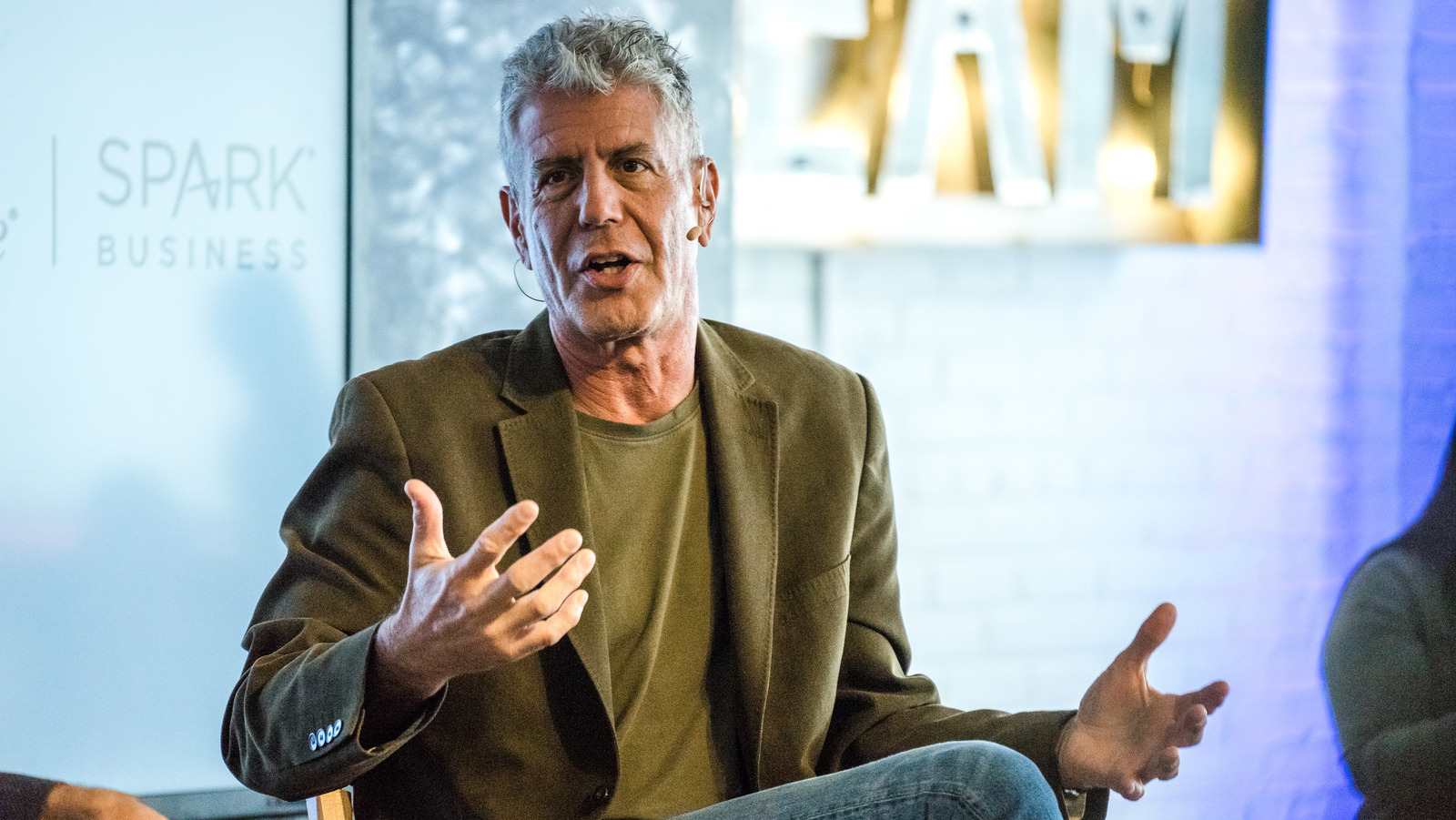
What Anthony Bourdain Was Like Behind The Camera

For years, Anthony Bourdain was a pillar of the foodie community. However, there was much more to the chef-turned-television personality than you may think.








